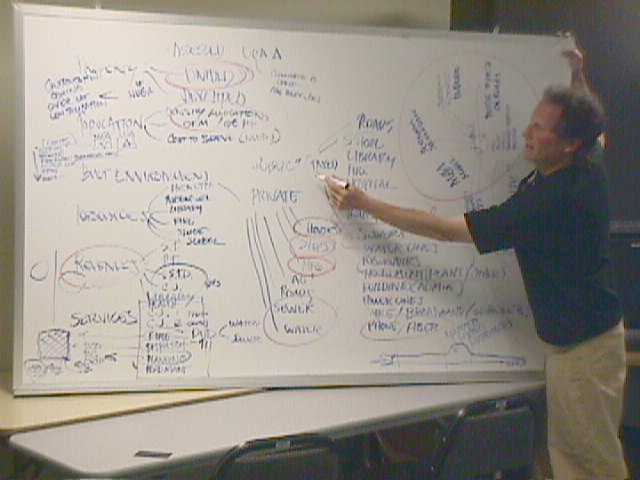
Back in 2007, I built several sites using Marc Andreesen's marvelous NING social network construction set, and one of them, the one which I had named ADHOCRACY, got the following editorial as a seed.
_____________________________________________________________________________
The most serious thing I have observed is that after I help friends and allies get elected to public office or ensconced in positions of power, they pretty rapidly drift out of my circle of friends and quite often step wholeheartedly into a category that feels more like "enemy combatants" than allies, co workers, or confidants.
I find this both amazing and disturbing, and had it not happened to me so many times, at so many levels of government, I would consider it an anomaly or a fluke. But I think it is a reflection of something much deeper, not about me, but about how representative government actually works.
Which is to say: I don't think I can point to a single instance in history where it has really worked. Or where it has created a stable system that remained true to its intentions. Hence my interest in adhocracies.
A bit more about Adhocracies:
Almost exactly 10 years ago Phil Speser and I went out for venture funding of a system to do what this site does, and a lot more. It was better than this because it ran "peer-to-peer" which means it ran a "fat client" (as opposed to a "thin client") and as a result the network (and its data) did not have to reside on a server.
The "due diligence" guys the V-C guys brought in to assess our technology were Lotus Notes guys. And the guys they talked to were pretty much all hardened bureaucrats and Fortune 100 guys. And they all said "this is a BAD idea." The most prescient of their critiques was that It "would allow the development of decentralized systems and we will lose control" ...
Which is EXACTLY what happened a few years later when "peer-to-peer" networking was rediscovered and harnessed by some college kids as NAPSTER as a way to implement music sharing, and look what happened: they basically took down the RIAA and the music publishing business.
http://en.wikipedia.org/wiki/Adhocracy
Adhocracy is a type of organization being an opposite of bureaucracy. The term was first popularized in 1970 by Alvin Toffler[1], and has since become often used in the theory of management of organizations (particularly online organizations), further developed by academics such as Henry Mintzberg.
The word is a portmanteau of the Latin ad hoc, meaning 'for purpose', and the suffix -cracy, from the ancient Greek cratein(κρατείν), meaning 'to govern'[1], and is thus a heteroclite. The term was first popularized in 1970 by Alvin Toffler[1] and has since become often used in the theory of management of organizations, further developed by academics such as Henry Mintzberg.
Welcome to a WAY better way of doing things
1 comment:
beautiful!
Post a Comment